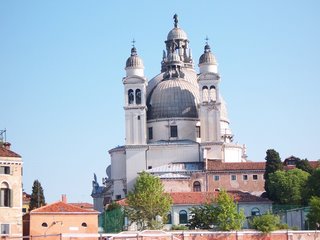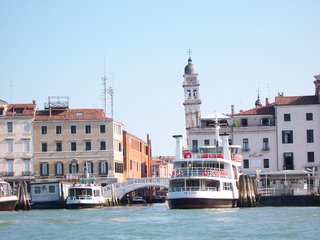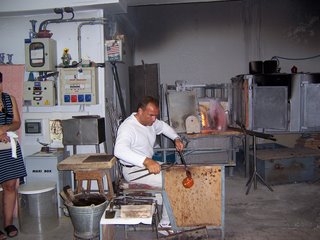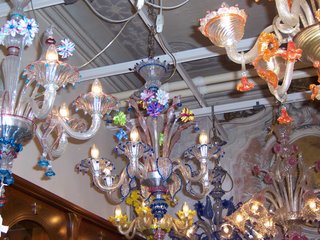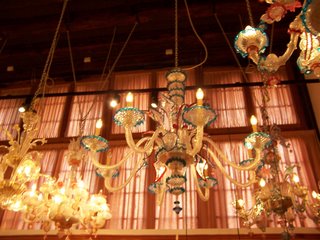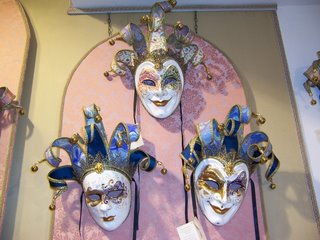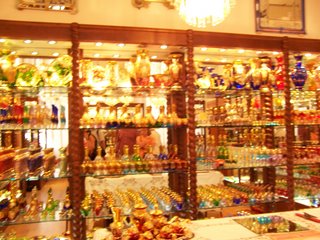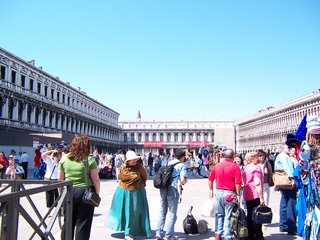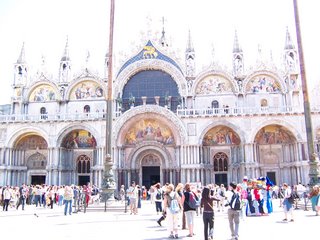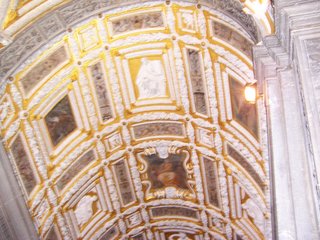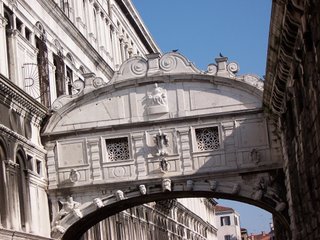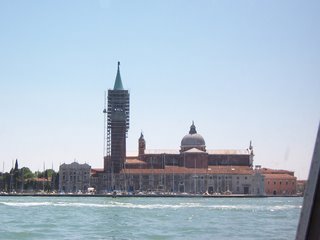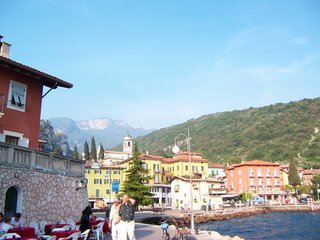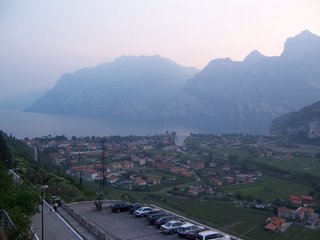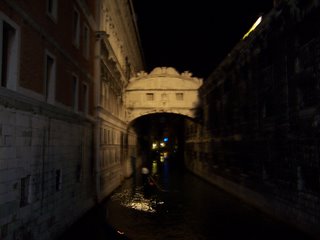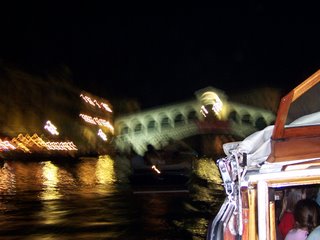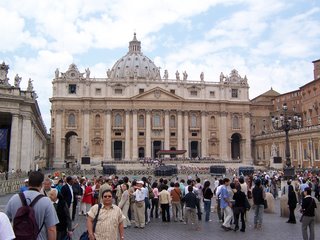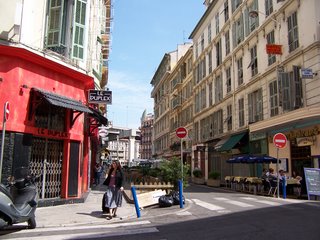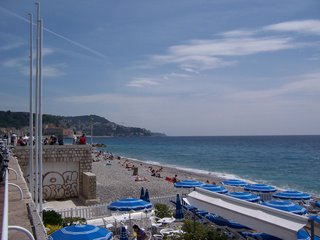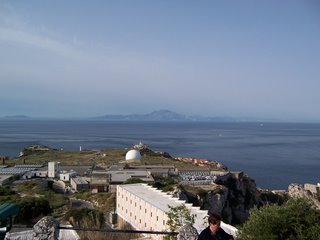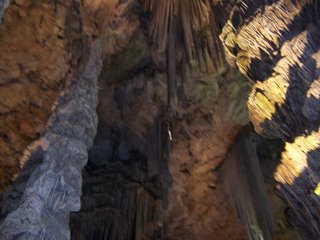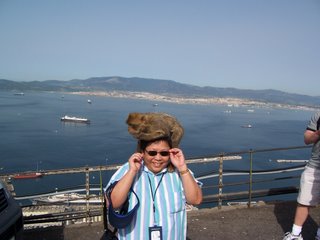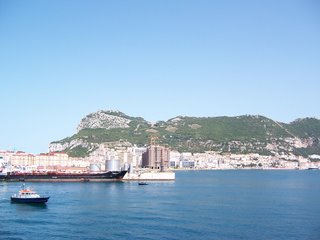There's a reason it's called
adventure. After a good time in the Azores (we did have a brief scare that we were going to miss the departure), we were ready for more gallivanting in Madeira. So Skip and Lynn, ourselves and Mary went walking into Funchal.

We quickly decided to hire a tour-van. The nice lady at the tourism kiosk gave us a proposed route for touring the island. She then called a tour company who sent a guide in a van. We negotiated a price and jumped in.
We wandered along the coast at first stopping at a seaside village. Then we stopped at a wine shop and picked up some liqueurs and, what else, some Madeira wine.
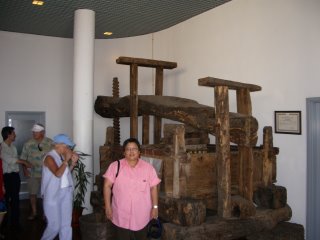
Then we started climbing up the steep mountainsides.
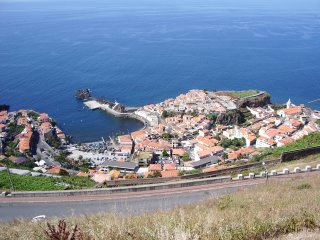
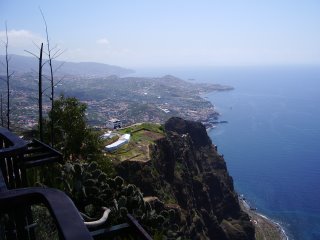
As we left the prosperous and booming residential areas behind on a narrow, winding road, the forest, which reminded me of eucalyptus, closed in. On a particularly steep section, the driver became concerned because the engine temperature was rising. Shortly after leaving the last lonely residence behind and trying to slowly climb up a steep grade, steam started coming off the engine.
We stopped, the driver got out and checked under the hood. we stretched our legs and began to fret. We were out of cell phone range so he couldn't call the company for help. We thought we were going to have to coast back downhill into cell range and call for help.
Our driver bravely(?) decided to open the radiator cap to release the pressure. The Automotively-aware among you will recognize that this is exactly the wrong thing to do. He got a nasty scald on his forearm while startling the rest of us with a cloud of steam that enveloped the front of the van. So now, for sure, you're thinking, we going to turn around and get help.
Gee, you have
no sense of adventure. We went back to the last lonely, seemingly empty, residence, filled our radiator from a water tap by the road, and resumed our agonizingly slow climb up the the mountain. (Something about translating a tour guide's English: "five minutes" means half an hour--up the mountain, that is). Our focus all the way up was on the engine temperature gauge. High anxiety.
We finally emerged on a plateau and were able to resume normal speed (which helped cool the engine off). We stopped for a view of the Atlantic on the other side of the island.
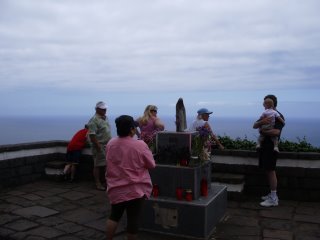
Then we descended to a town by the sea, where we ate a lovely, if late, lunch. We had Black Scabbard. A photo-op and we're racing back to Funchal.
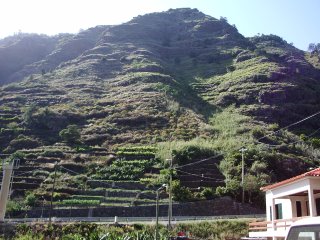
We followed the coast road to the middle of the island, where we headed into a tunnel. This is good news, because it means we don't have to climb all the way up the mountain that is the backbone of Madeira. Now remember that space is at a premium in Europe and especially on this crowded island. So this is a
long,
narrow two-lane tunnel. Just as we head into this tunnel a big, slow dump truck pulls in front of us. That means we have to go slow, which causes the engine to heat up; in a narrow long tunnel we cannot turn-around or go backwards in. And the first puff of steam greets us.
And you thought we were anxious going up the mountain. A van full of people cursing and encouraging the van. The long slow climb up the tunnel. You have never seen such a happy group emerging into the daylight. We coasted down to the village we had first visited, stopped at a hardware store and waited for the boss to deliver a functional van.

It was an adventure of the sort not to be forgotten. Do you think this cured us of the desire to be independent?
